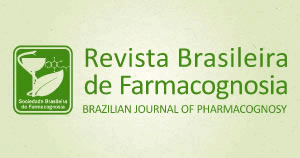Wistar rats (n=20) were divided in two groups: G1 received 2 mg/kg of GBE (Ginkgo biloba extract 761), whereas G2 received the same volume of a sodium chloride solution (0.9%), both for 10 days. After a 7-day interval, the treatment was repeated for 8 days. Urine volume and food and water intake were measured daily during this protocol. Histological assessments were performed. No significant difference (p>0.05) was observed in food and water intake of animals during treatment with GBE. Animals who received GBE had a smaller urine volume and increase of weight with a significance difference (p<0.05) during the first and second exposure period. No histological alteration was observed in tissues, except for the kidney of the experimental group, which revealed a higher concentration of red cells in the glomerulus with a strong staining for Vascular Endothelial Growth Factor (VEGF). The introduction of GBE (therapeutic dose) in health rats may promote alterations in the physiology of the kidney, but no sufficient to modify the glomerulus architecture, including at ultra structural level (electron microscopy).
electron microscope; Ginkgo biloba; kidney; VEGF












